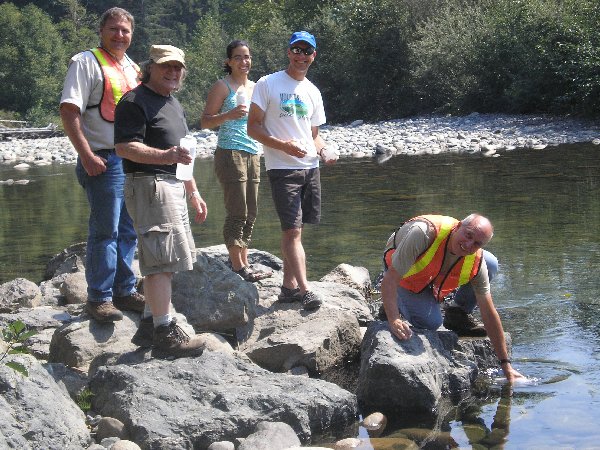Groundwater Report holds no surprises for MVIHES
BC Auditor General’s Report on Groundwater confirms Mid Vancouver Island Habitat Enhancement Society’s (MVIHES) worries about the gap in knowledge concerning this precious resource.
On December 1st, the BC Office of the Auditor General released its findings on the state of groundwater management in the province. It concludes that because of insufficient information, lack of protection from depletion and contamination, lack of control over access and of local authority to take responsibility for groundwater, the government is not effectively ensuring the sustainability of the province’s groundwater resources. The report recognizes that although the province is committed to improving the protection of the quality and quantity of groundwater through the Water Act Modernization process, that will not lead to new legislation until at least 2012.
Not content to wait until 2012 to get in line with other priority watersheds for attention, MVIHES has initiated a major study of the aquifers in the lower Englishman River watershed with Hydrogeologist, Dr. Gilles Wendling. With the help of many community well-owners, the Regional District of Nanaimo, the Ministry of Environment, Vancouver Island University and significant funding from RBC Blue Water Project, Living Rivers and the Real Estate Foundation of BC, the Society is taking action now to understand groundwater in the Englishman River watershed.
MVIHES Project Coordinator, Faye Smith, says that the report is a huge wake-up call to start paying more attention to our water resource. It’s not just that we could put at risk our drinking water, but we could also be putting our entire ecosystem at risk if we continue to develop in places that may be important recharge areas or in aquifers that are already stressed.
 Mid Vancouver Island Habitat Enhancement Society (MVIHES) had the opportunity to assist the Ministry of Environment with water testing of the Englishman River during the low flow period . Volunteers collected samples of the river water at a number of sites 5 times over a 30-day period. On the 5th day they also scraped algae off rocks, collected benthic invertebrates in a net, measured and counted rocks and assessed the physical attributes of each site.
Mid Vancouver Island Habitat Enhancement Society (MVIHES) had the opportunity to assist the Ministry of Environment with water testing of the Englishman River during the low flow period . Volunteers collected samples of the river water at a number of sites 5 times over a 30-day period. On the 5th day they also scraped algae off rocks, collected benthic invertebrates in a net, measured and counted rocks and assessed the physical attributes of each site.